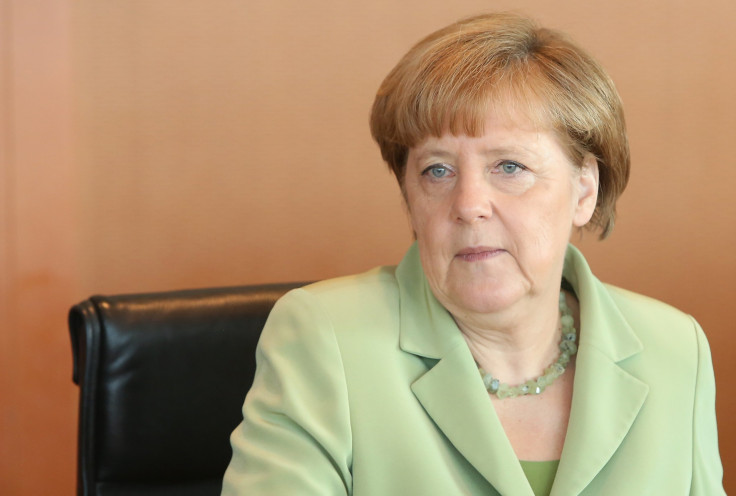Greece Debt Crisis: Many Germans Back Merkel's Hard Line, Despite IMF Criticism

Despite strong criticism from neighboring countries in the European Union and the International Monetary Fund, many Germans continue to support Chancellor Angela Merkel's strict austerity plan for Greece. While Greek civilians began rioting Wednesday night in Athens over a bailout they believe will make life and repayment of loans impossible, Germans spoke of the need for belt-tightening in Greece.
“What I find very disappointing is nobody seems to be giving Germany credit for what we are doing,” said Caroline von Linsingen, 35, a German ex-pat living in London. She said Greece has not been successful in taxing the rich and blamed the lack of structural change within the Greek government for the continuing crisis.
The IMF shocked EU leaders when a leaked report published by Reuters Tuesday showed that the IMF would not take part in a new bailout plan if that plan did not include a large element of debt forgiveness. The IMF argued for a 30-year grace period for Greece, saying: "The dramatic deterioration in debt sustainability points to the need for debt relief on a scale that would need to go well beyond what has been under consideration to date."
Many German people, however, have no interest in considering debt forgiveness for Greece. Germany is the largest European creditor of Greek loans and would be on the hook for a large chunk of the $96 billion now being offered in the bailout.
“I think there’s a time for liberalism and there’s a time for conservatism," said Osbourn Patrick Kemp, a 43 year-old tour guide from Munich. Kemp referred all the way back to World War I to argue that Germany has become the largest economy in Europe through domestic austerity and limited spending.
When asked to respond to the fact that after World War II 50 percent of German debt was forgiven by the Allied Powers, Kemp said: “even with an element of debt forgiveness, Germans have learned to live with minimal." He also noted that the majority of people who lived through the Second World War in Germany were now dead. “[There is a] generation of Germans who don’t know about a debt write-off, but they know what it’s like to live with high taxes,” he said.

Sebastian Ludwig, 47, owner of the restaurant Weinstube Am Stadtgraben in Stuttgart, said those looking to blame others for Greece's debt crisis should look beyond Berlin. "It’s too much focused on Germany...there are other countries behind Germany who put Greece into this strict direction, like Finland,” said Ludwig. "Germany is in the frontline, but it’s not the only country.”
The German Parliament is likely to vote on the new bailout proposal on Friday with Merkel pushing lawmakers to vote for a plan that includes stronger austerity measures than former bailouts, including large budget cuts, slashing of pension plans and possibly selling off ancient Greek art and artifacts.
“Germany is the bad boy, but a lot of European countries have the same position as Germany," said Helmut Adam, the owner of a small publishing house in Berlin. Adam, 41, said that while he personally thinks debt forgiveness is the only way out of the crisis, he felt the majority of Germans were with Merkel and described her as a leader who "never goes against public opinion."
© Copyright IBTimes 2025. All rights reserved.






















